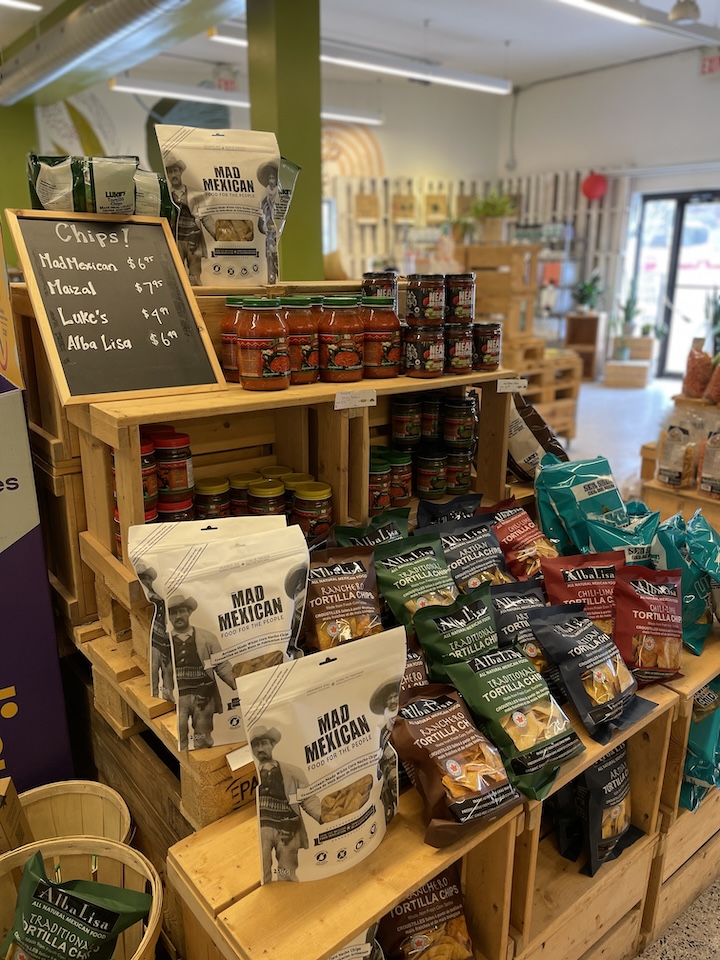The tariff war means a new normal for Hamilton businesses

The wrecking ball that Donald Trump has taken to international trade has wounded relations between Hamilton businesses and their American suppliers and customers. Now they’re looking east and west to replace traditional links to the south.
Editor's note: This story was finalized in late April. We acknowledge that this is a highly fluid and volatile situation and that tariffs being imposed may have changed since HAMILTON CITY Magazine went to press.
Keanin Loomis, a leader in Hamilton’s business community who has lived and worked in both Canada and the United States, can’t come to grips with the delusional and reckless tariff policies of Donald Trump.
For Loomis, the long-standing rules governing trade between the two countries have seemed so permanent, so well-established that it seems impossible that the U.S. can wave them away with a simple presidential order.
“This is hard as an American citizen, as a dual national,” says Loomis, the former CEO of the Hamilton Chamber of Commerce, a past mayoral candidate and now CEO of the Canadian Institute of Steel Construction. “This is particularly personal for somebody who’s straddled both sides of the border for my entire life. I can’t even believe we’re here, to be honest.”
While Canadians and Hamiltonians grapple with the enormity of these tariffs, a new normal of Canada-U.S. trade relations is beginning to settle in with the city’s business community.
“People realize that the status quo is no longer good,” says Norm Schleehahn, director of economic development with the City of Hamilton. “It’s a wake-up call. We’re going to see the east-west discussion being more of the norm now versus just relying on north-south relationships.”
This new normal – the realization that the traditional Canada-U.S. relationship has come to an end – was front and centre in Canada’s recent election campaign. “It is clear that the United States is no longer a reliable partner,” Prime Minister Mark Carney told reporters at the end of March. “We will need to dramatically reduce our reliance on the United States. The road ahead will be long. There is no silver bullet. There is no quick fix.”

Hamilton is vulnerable
Hamilton’s economic base evolved in the years after World War II, a time of growing integration in cross-border markets. While there have been occasional trade disputes, especially in the steel industry, the city’s manufacturing and transportation businesses established firm links with suppliers and customers across the border based on a faith in enduring free trade.
That friendly arrangement ended on April 2.
That was the day Trump unveiled his so-called “reciprocal tariffs.” In his words, the new policies were meant to fight unfair tariff and non-tariff barriers by America’s trading partners. In fact, the tariffs were created with flimsy math based on national trade patterns that in most cases had nothing to do with tariff rates imposed on the U.S.

In Canada’s case, no “reciprocal tariffs” were imposed. Rather, Trump levied a 25 per cent tariff on non-U.S. content of vehicles imported into the U.S. These new tariffs came in addition to a 25 per cent tariff on steel and aluminum products imposed earlier. The Canadian government levied counter-tariffs on the same goods and billions of dollars of other U.S. products.
By sparing (at least for now) Canada from “reciprocal tariffs,” Hamilton was saved from the worst possible impacts of the U.S. trade policies. Nevertheless, the blow to Hamilton was significant.
This is because of the large share of employment in the city related to the steel industry. About 10,000 people work for the primary steel producers and fabrication companies, and thousands more work in related supply and service providers. In addition, about 1,800 Hamiltonians work in auto parts companies. Together, that’s more than a third of the city’s total manufacturing employment of 29,000.
To make matters worse, a large share of the primary steel produced in Hamilton is used in auto production. Several car companies issued layoff notices after the Trump announcement in April because tariffs immediately disrupted cross-border auto industry supply chains, also causing potential ripple effects in the steel industry.
“When you layer in the steel and auto tariffs, I’d be shocked if we are not now into the top three communities impacted in the country,” says Greg Dunnett, CEO of the Hamilton Chamber of Commerce.
There are signs that business growth plans are being halted or slowed down. Thirty-eight per cent of more than 200 local businesses responding to a City of Hamilton survey said they expect to put off investments due to tariff-related uncertainty. Thirty-two per cent expect to reduce their workforce.
“Businesses have stopped their expansion plans or have delayed them because they don’t know what tomorrow looks like, much less what a three-, five- or 10-year window looks like,” Dunnett said in an early April interview. “It’s going to have a long-term slowdown because those expansion and growth opportunities are being delayed or shuttered.”
At the time of writing in early April, neither ArcelorMittal Dofasco nor Stelco had publicly commented on the tariffs. But Laurenco Goncalves, CEO of Cleveland-Cliffs Inc., Stelco’s U.S. owner, said he supports the tariffs and believes Stelco can weather them by pursuing Canadian markets, a strategy the company used with some success in a previous tariff fight in 2018.

Canadians get a friendly reception in Europe
The week that Trump announced his tariff plan, business people from around the world gathered at Hannover Messe (messe means “trade fair” in German), site of the largest annual manufacturing trade event in the world. Held annually in a sprawling convention centre in Hannover, Germany, the event this year attracted 130,000 participants from 4,000 companies and more than 150 countries. As the official partner country, Canada had one of the largest contingents at more than 250 delegates and more than 230 exhibitors.
Planning for Canada’s participation was a year in the making, long before Trump was re-elected president or his tariffs were rolled out. But a large number of Hamilton companies sent delegates or exhibited, at least partly motivated by potential opportunities presented by the Trump trade attacks. The reception was very positive.
“It has been absolutely overwhelming to see the response and the reception we are getting from European markets,” Brad Sparkman, president of Orangeville-based Innovating Finishing Solutions, told CBC News.
Representing the City of Hamilton, Schleehahn said Canadian companies told European customers and suppliers they would be a reliable partner. The message was greeted warmly. “They absolutely love Canada,” he said.
Attending companies based in Hamilton or with local interests included Kubes Steel, a construction steel manufacturer, industrial supply companies Bar Hydraulics and VTR Feeder Solutions, pre-fabricated home builder BECC Modular, and real estate developer Slate Asset Management. Mohawk College, McMaster University, McMaster Innovation Park and the Hamilton Oshawa Port Authority also attended.
Hamilton-based EVM Group, which provides industrial automation products and services, went to the event to meet with existing customers and to explore new markets.
Adam McCormick, chief growth officer, said the company was recently cast out of the running for a major U.S. industrial control panel contract when EVM couldn’t confirm how much of the total cost would be subject to the new steel tariffs.
But Canadian trade in automation services is a growing market as companies demand more artificial intelligence controls over manufacturing processes. And with strong two-way trade between Canada and Europe, there is growing demand for these services in Europe and for European companies operating in Canada, he said.
Canadian expertise in industrial automation is ranked fourth- or fifth-best in the world, said McCormick, which was a strong selling point at the show. “The interest in working with Canada is very, very big. We’ve had a lot of positive conversations with a lot of people about how they want to increase their operations or sales in Canada.”

Fixing Canadian markets
As many companies pursue international markets, others, including some in the steel industry, face a fundamental problem: Steel is being dumped on world markets by China and other countries at prices far too low for them to match.
China produced about 990 million tons of steel in 2024, more than half the world total of 1.9 billion tons. To contrast, the U.S. produced 81 million tons and Canada produced a mere 12 million.
Much of this steel is being dumped by China and other countries such as South Korea, Vietnam and Turkey at cut-rate prices into Canada, a problem that is expected to get worse as producers search for alternatives to the U.S. market.
“We are expecting more unfairly traded (steel) goods to land in Canada because they can’t go to the United States,” says Catherine Cobden, CEO of the Canadian Steel Producers Association. A 25 per cent steel tariff Canada imposed on China last fall will help, she says, but there needs to be greater enforcement and higher tariffs. “It is time for the government to do much more to get that unfair trade out of the market.”
“There is still a threat of Chinese steel flooding the zone here in North America,” said Loomis at the Canadian Institute of Steel Construction. “We want to make sure that we’re acting in concert with the Americans against this common threat.”
While the steel industry is hopeful the Canadian government can get relief from U.S. tariffs by focusing on the common problem of offshore dumping, industry representatives are looking for Canadian markets for at least some of the steel now sold in the U.S.
Loomis is calling for federal and provincial rules requiring that Canadian steel must be used for infrastructure projects like bridges, public buildings, pipelines and the giant new auto battery plants that will be built partly with government funding. “We’re looking at projects that are close to being awarded where there is a threat of them using Chinese steel or foreign fabricators.”
Modular houses made with corrosion-resistant steel could be another major market as governments call for a crash program in home-building, says Peter Warrian, a steel industry researcher at University of Toronto’s Munk School for International Studies. An east-west energy pipeline and expansion of the national electric grid could also provide additional demand for Canadian steel.
But Warrian also believes there will be substantial pressure on Trump to relent on the tariffs, particularly on autos. “We’ve just spent 20 or 30 years and billions of dollars building an integrated North American industry. Are you (Trump) really saying we’re supposed to unwind all that?”
At the time this article was written, there were growing signs that the Trump tariff plan may not last long. Trump supporters like Texas Senator Ted Cruz warned that tariff-caused inflation and unemployment could devastate Republican support. The Senate was flexing its muscles, preparing measures to re-take control of national trade policy. Stock markets were plunging and auto plants on both sides of the border had announced layoffs.
But even if Trump’s tariff plan unravels, the fundamental relationship between Canada and the U.S. has changed. Hamilton businesses and their industry leaders are adapting to new realities, looking less at the U.S. and more toward fresh markets at home and abroad.
Dunnett says this new paradigm is about more than business relationships; it’s about Canada’s existence.
“It’s imperative for us as a nation as we go through this that we don’t back down,” he says. “We all have to be cognizant of the fact that this is about more than just trade. We need to protect our sovereignty.”
Local food chain casts out U.S.-made products
MRKTBOX, a trio of three Hamilton food stores with a mission to promote local purchasing, has struck a blow for Canadian food producers by wiping their shelves clean of products from the United States.
The decision to go non-U.S. came this spring after Donald Trump suggested he would impose tariffs on Canada.
“We decided to remove the American products from our offerings out of solidarity” with workers and industries affected by the tariffs, says MRKTBOX CEO Rachael Henderson. MRKTBOX also felt strongly that the action was warranted by current U.S. policies on human rights issues, especially those affecting 2SLGBTQIA+ communities.

The company operates Strathcona Market, Ottawa Market and Dundurn Market as well as a home food delivery service.
Growing numbers of Canadian retailers are abandoning U.S. brands in the face of a grassroots consumer boycott that has been catalyzed in the “elbows up” movement popularized by comedian Mike Myers. Henderson said the action has been popular with MRKTBOX customers and is prompting many customers to find out more about how their food is sourced.
“A lot of people are asking more questions now about where things are made, and they are more interested to know where their food comes from, which I think has been one of the silver linings of the whole situation.”
Hamilton native leads effort to protect Canada’s wealth, sovereignty
Shortly after his election in November, Donald Trump started pontificating about how Canada should become the 51st state, while claiming the United States was subsidizing its northern neighbour.
For Bill Young, this was too much. The Hamilton-born founder of Toronto-based Social Capital Partners – a social enterprise devoted to solving the problem of wealth inequality – talked to his SCP colleagues and decided to launch Always Canada – Never51.
The project, part economic populism mixed with methodical policy-making, is devoted to the issues of wealth inequality and Canadian sovereignty.
“It was a timely way of channeling our collective frustration, not just at Social Capital Partners but Canadians as a whole,” he says. Young says Trump’s talk of taking over Canada supercharged the company’s mission.

SCP wants to build policy responses inspired by one of its chief success stories: a worker ownership package that saved Taylor Guitars by enabling employees of the vintage American guitar maker to buy out its aging founders.
The team is advocating ideas like how Canadian entrepreneurs can buy existing businesses, how pension funds can invest in Canadian manufacturers, how company owners can sell to their employees, and how governments can limit Americans from buying Canadian firms.
Young established a successful computer business in the 1990s, and then invested in Red Hat, a hugely profitable software company founded by his cousin and fellow Hamiltonian, Bob Young. Bill Young established SCP in 2001.
Bill Young is also an advisor to the Young Fund at the Hamilton Community Foundation. The fund was established by his mother Joyce with a $40 million donation in 2000. At the time, it was one of the largest donations in Canada’s history.
Bill Young says his combination of business and charitable experience has led him to this moment when both these ways of thinking are crucial. “Capitalism is here to stay. We’ve got to make it work way better for way more people.”
For more information, visit here.
Eugene Ellmen writes about sustainable business and finance. He lives in Hamilton.

















